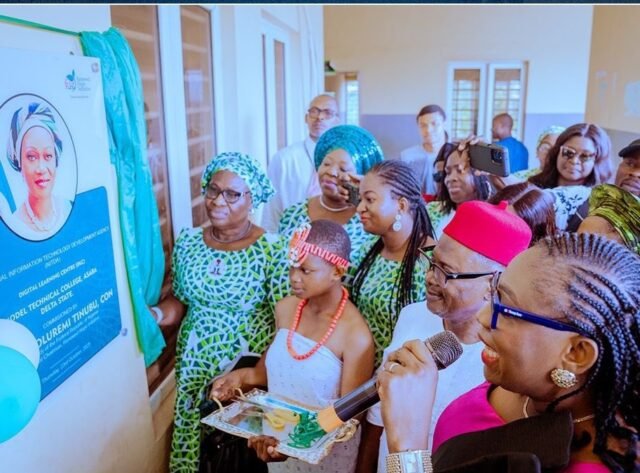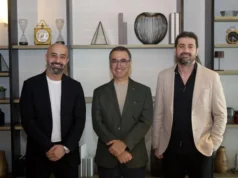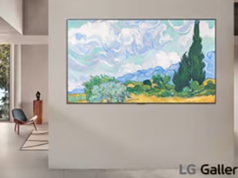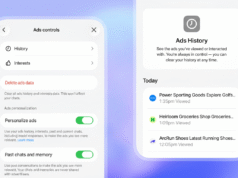Edo State has joined Nigeria’s growing map of digital transformation in education as the First Lady, Senator Oluremi Tinubu, commissioned a new Digital Learning Centre at Ujabhole Grammar School in Irrua, Esan Central Local Government Area.
The project, commissioned under the Renewed Hope Initiative, reflects the Federal Government’s push to expand digital literacy across Nigeria’s schools and equip young people with the skills required to thrive in a fast-changing world.
Representing the First Lady at the event, Mrs. Edesili Okpebholo Anani, who coordinates the Office of the First Lady in Edo, described the centre as a symbol of commitment to empowering the youth through technology and innovation. She said the facility is not only a building but a “promise fulfilled to bridge the knowledge gap between rural and urban learners.”
The Digital Learning Centre, equipped with computers, internet connectivity, and solar power backup, will serve both students and teachers of Ujabhole Grammar School and the surrounding communities.
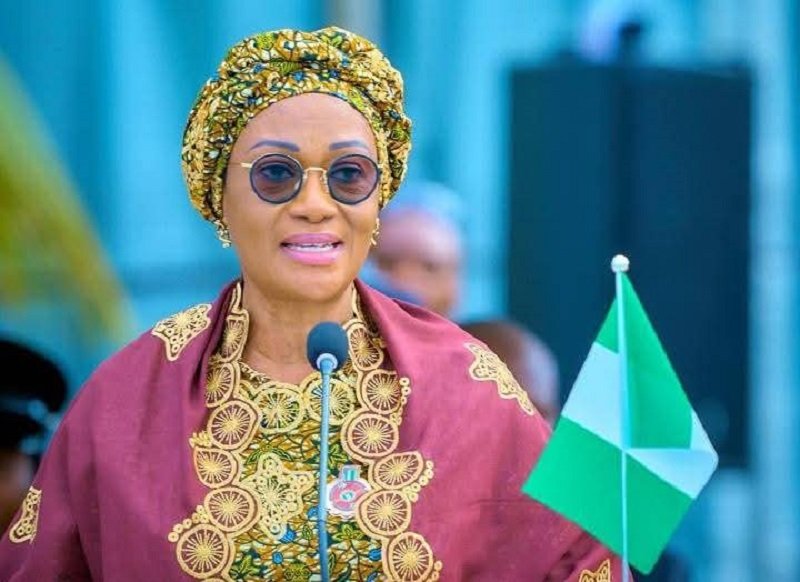
Table of Contents
Federal Push for Digital Inclusion
In a virtual address during the event, the Director-General of the National Information Technology Development Agency (NITDA), Mr. Kashifu Inuwa Abdullahi, revealed that 296 similar centres have already been built across the country, with an additional 148 planned before the end of the year.
According to him, the Federal Government’s target is to complete 592 Digital Learning Centres by 2027, underlining the administration’s commitment to democratise access to information technology and promote inclusive education nationwide.
Mr. Inuwa described digital education as a cornerstone for Nigeria’s economic growth, noting that the learning centres are designed to expose young Nigerians to coding, robotics, artificial intelligence, and other digital skills that are shaping the global economy.
He added that “access to technology is the new foundation of equality,” stressing that the government’s vision is for every Nigerian child—no matter their background or location—to have equal access to digital tools that can unlock creativity and innovation.
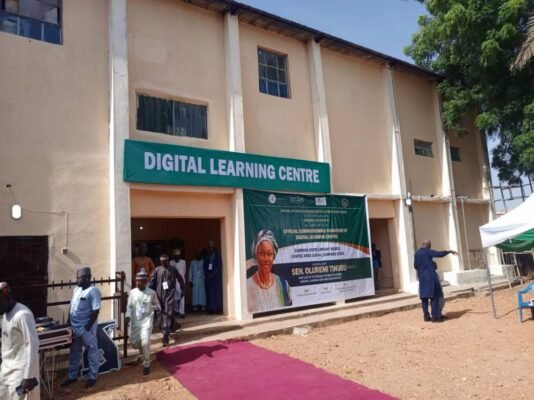
Community Joy and Students’ Excitement as Nigeria’s First Lady Commissions Digital Learning Centre in Edo
The Principal of Ujabhole Grammar School, Mr. Asemote Wisdom, could hardly hide his joy as he expressed gratitude to the First Lady for her gesture. According to him, the new facility marks a turning point for the school and the entire Esan Central community.
“For years, our students have relied on limited resources to learn about computers and the internet. Now, with this centre, we can teach practical ICT lessons and prepare our learners for future opportunities,” he said.
He added that the centre would serve as a training ground for teachers as well, helping them integrate digital learning tools into classroom teaching.
Several students, including Ohue Gift, Ekujuvwevwo Reality, and Omoriawo Destiny, also shared their excitement. They described the centre as a dream come true, promising to use the opportunity to enhance their learning, creativity, and innovation.
“This will help us learn new skills and even start small online businesses,” said Gift, a senior student who aspires to study computer science.
Parents and community leaders in attendance praised the initiative, describing it as a bold step towards ensuring that rural students are not left behind in the digital era. They commended the First Lady for extending her vision beyond the big cities to touch the lives of students in smaller communities.
Beyond the Commissioning: Sustaining the Gains
While the commissioning ceremony brought joy and excitement, education experts at the event stressed the importance of sustainability.
Mr. Inuwa Abdullahi of NITDA urged local education authorities to ensure that the centre remains functional, regularly maintained, and effectively utilised. He advised schools to establish ICT clubs to encourage continuous learning beyond the classroom.
Stakeholders also emphasised the need for ongoing training for teachers, noting that “technology is only as effective as the people who use it.” Without regular capacity-building, they warned, the centre might risk becoming underutilised.
Mrs. Anani reaffirmed that the Renewed Hope Initiative will continue to support teacher development and ensure that the centre remains active. She further called on local communities to take ownership of the facility, seeing it as a shared investment in the future of their children.
Education analysts have lauded the federal and state governments for extending digital infrastructure to rural areas, noting that digital inclusion is a critical component of national development. They pointed out that the initiative aligns with Nigeria’s broader policy objectives under the National Digital Economy Policy and Strategy (2020–2030), which seeks to make the country a globally competitive digital economy.
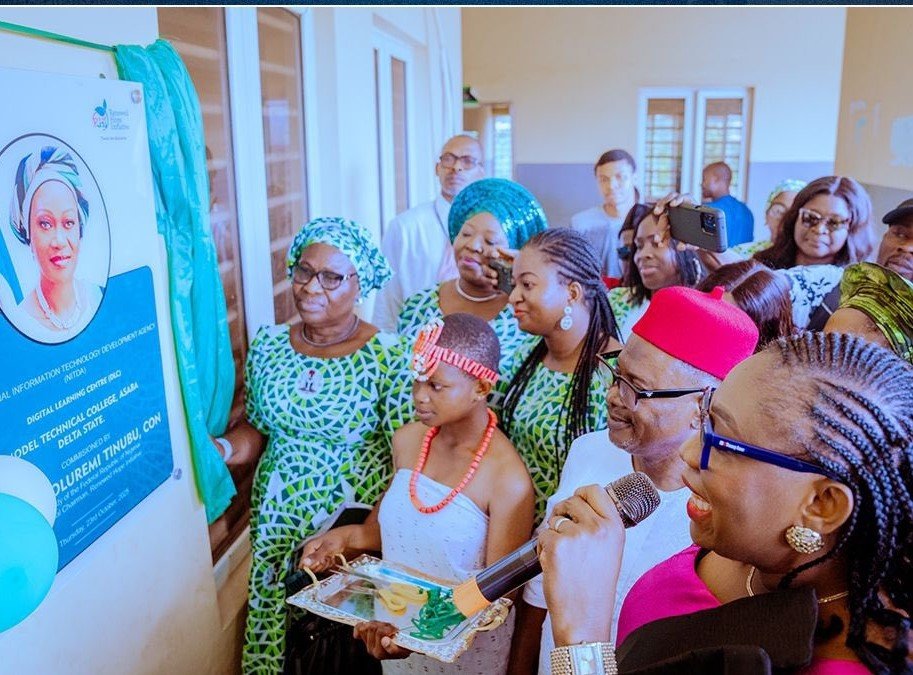
A Vision for the Future
For Ujabhole Grammar School and the surrounding communities, the commissioning of this Digital Learning Centre marks a new chapter. It offers the chance for thousands of young people to experience technology firsthand, gain relevant 21st-century skills, and connect to global knowledge networks.
As the First Lady’s Renewed Hope Initiative continues to expand its reach, this project serves as a tangible example of what visionary leadership and coordinated action can achieve in bridging Nigeria’s digital divide.
The hope now is that the facility will not only empower learners academically but also inspire innovation, entrepreneurship, and self-reliance among Edo’s young people—building a future where every child, regardless of geography, has the tools to succeed in the digital age.
Join Our Social Media Channels:
WhatsApp: NaijaEyes
Facebook: NaijaEyes
Twitter: NaijaEyes
Instagram: NaijaEyes
TikTok: NaijaEyes


